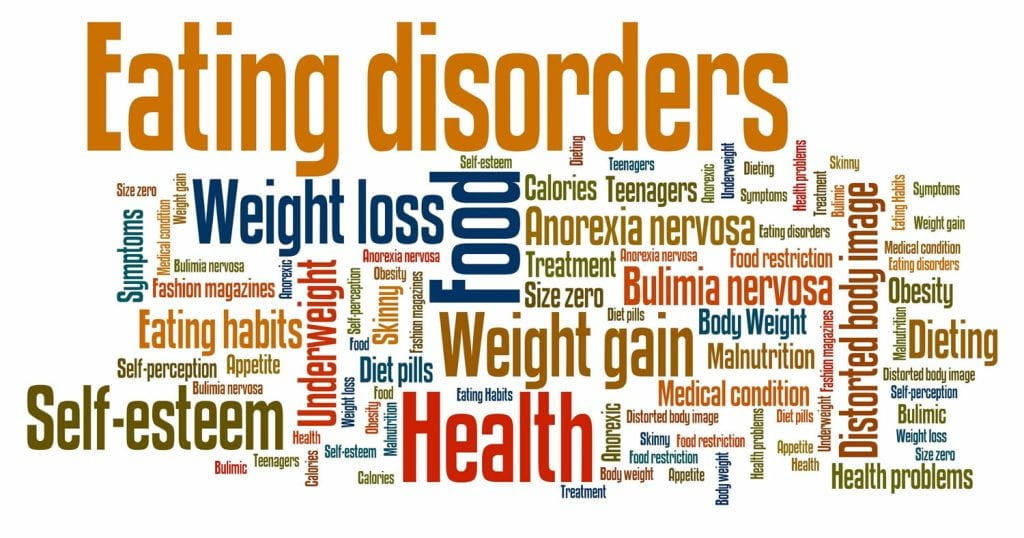
Introduction
Eating disorders are serious mental health conditions that affect individuals of all ages and backgrounds. They involve extreme emotions, attitudes, and behaviors surrounding weight, food, and body image. Megan Y. Bruce, LCSW, is a licensed clinical social worker with extensive experience in diagnosing and treating eating disorders. This guide provides an in-depth look at the different types of eating disorders, their causes, risks, and the critical role of therapy in recovery.
Eating Disorder Diagnoses
Eating disorders are diagnosed based on specific criteria outlined in the Diagnostic and Statistical Manual of Mental Disorders (DSM-5). These diagnoses include:
- Anorexia Nervosa:
- Characterized by restrictive eating, intense fear of gaining weight, and a distorted body image.
- Individuals with anorexia often have dangerously low body weight and may deny the seriousness of their condition.
- Bulimia Nervosa:
- Involves episodes of binge eating followed by purging behaviors, such as vomiting, excessive exercise, or use of laxatives.
- Those with bulimia often maintain a normal weight, making the disorder less visible but equally harmful.
- Binge-Eating Disorder:
- Characterized by recurrent episodes of eating large quantities of food in a short period, accompanied by feelings of loss of control and distress.
- Unlike bulimia, binge-eating episodes are not followed by purging, leading to weight gain and related health issues.
- Avoidant/Restrictive Food Intake Disorder (ARFID):
- Involves a persistent failure to meet nutritional needs due to food avoidance or restriction, leading to significant weight loss and nutritional deficiencies.
- ARFID is often rooted in fear of adverse consequences like choking or vomiting, or a strong dislike of certain textures.
Types and Causes of Eating Disorders
Eating disorders can take many forms, and their development is influenced by a combination of genetic, psychological, and environmental factors.
Types of Eating Disorders:
- Restrictive Eating Disorders: Include anorexia nervosa and ARFID, where individuals severely limit their food intake.
- Binge/Purge Disorders: Include bulimia nervosa and binge-eating disorder, characterized by cycles of overeating and compensatory behaviors or emotional distress.
- Other Specified Feeding or Eating Disorders (OSFED): A category for eating disorders that do not meet the criteria for the above diagnoses but still cause significant distress and impairment.
Causes of Eating Disorders:
- Genetic Factors: A family history of eating disorders, depression, or anxiety can increase the risk.
- Psychological Factors: Low self-esteem, perfectionism, and body dissatisfaction are common contributors.
- Environmental Factors: Societal pressure to conform to unrealistic body standards, traumatic experiences, and family dynamics can play a significant role.
- Biological Factors: Chemical imbalances in the brain, such as those affecting serotonin levels, can influence eating behaviors.
Risks of Eating Disorders
Eating disorders pose significant risks to both physical and mental health. If left untreated, they can lead to severe and sometimes life-threatening complications, including:
- Nutritional Deficiencies: Malnutrition, electrolyte imbalances, and dehydration are common and can lead to organ damage.
- Cardiovascular Problems: Irregular heartbeats, low blood pressure, and heart failure can result from extreme weight loss or purging behaviors.
- Gastrointestinal Issues: Chronic constipation, bloating, and digestive issues often occur, especially in those who engage in bingeing and purging.
- Bone Health: Osteoporosis or bone loss due to inadequate calcium and vitamin D intake is a risk, particularly in individuals with anorexia nervosa.
- Mental Health Concerns: Depression, anxiety, and a heightened risk of suicide are prevalent among those with eating disorders.
Eating Disorder Treatment and Importance of Therapy
Effective treatment for eating disorders typically involves a combination of medical care, nutritional counseling, and psychotherapy. Therapy plays a crucial role in addressing the underlying emotional and psychological issues that contribute to disordered eating behaviors.
Types of Therapy:
- Cognitive Behavioral Therapy (CBT): CBT helps individuals identify and change negative thought patterns and behaviors related to food, body image, and self-worth.
- Dialectical Behavior Therapy (DBT): DBT is particularly useful for those with severe emotional dysregulation, helping them manage intense emotions and reduce harmful behaviors.
- Emotion-Focused Therapy (EFT): EFT addresses the emotional roots of eating disorders, such as unresolved trauma, shame, and insecurity, promoting emotional healing.
Individual and Group Eating Disorder Therapy
Individual Therapy:
- Personalized Treatment Plans: Individual therapy allows for a tailored approach to each person’s unique challenges, focusing on their specific needs and goals.
- One-on-One Support: Therapists work closely with individuals to explore their thoughts, emotions, and behaviors, providing a safe space for healing.
Group Therapy:
- Peer Support: Group therapy offers the opportunity to connect with others who are experiencing similar challenges, reducing feelings of isolation.
- Shared Learning: Participants can learn from each other’s experiences, gaining insights and strategies that may not emerge in individual therapy.
Family Support and Parenting Support for Eating Disorders
The role of family in the treatment of eating disorders is critical, especially for children and adolescents. Family support can significantly influence the recovery process.
Role of Parents and Family in Eating Disorder Treatment:
- Understanding the Disorder: Educating parents about the nature of eating disorders helps them better support their loved one’s recovery.
- Meal Support: Families often play a key role in ensuring their loved one follows a structured eating plan, especially in the early stages of recovery.
- Emotional Support: Providing a stable and nurturing environment helps reduce stress and emotional triggers that may exacerbate disordered eating behaviors.
Parenting Support:
- Parental Guidance: Therapists work with parents to develop effective communication and coping strategies, reducing family conflict and fostering a supportive atmosphere.
- Family-Based Therapy (FBT): FBT involves the entire family in the treatment process, empowering parents to take an active role in their child’s recovery.
Case Study: The Impact of Family Support in Eating Disorder Recovery
Case Study: Sarah’s Journey to Recovery
Sarah, a 14-year-old girl, was struggling with anorexia nervosa. Her parents noticed her drastic weight loss and withdrawal from social activities, and they sought help from Megan Y. Bruce, LCSW.
Megan introduced the family to Family-Based Therapy (FBT), where they learned about the importance of meal support and creating a positive emotional environment. Over several months, Sarah’s family worked closely with Megan to support her recovery. They held regular family meals, provided emotional encouragement, and learned to communicate more effectively. With the combined efforts of individual therapy, nutritional counseling, and family support, Sarah began to regain her health and rebuild her relationship with her family.
Meet Therapist Megan Y. Bruce, LCSW
Megan Y. Bruce, LCSW, is a licensed clinical social worker specializing in the treatment of eating disorders and other mental health issues. With a compassionate and evidence-based approach, Megan is dedicated to helping individuals and families overcome the challenges of eating disorders and achieve lasting recovery.
Reach Out Today
If you or a loved one is struggling with an eating disorder, don’t hesitate to seek professional help. Contact Megan Y. Bruce, LCSW, at 408.805.4385 or visit Meganbrucelcsw.com to schedule a consultation and begin your journey towards healing.
Megan Y. Bruce offers a wide range of therapy services at her practice, including support for eating disorders, ADD/ADHD, parenting challenges, depression, anxiety, compulsive behavior, self-esteem issues, family conflict, grief, LGBTQIA+ concerns, and women’s health.
Megan Y. Bruce offers a safe and supportive environment where individuals and families can explore their challenges and work towards positive change.
Article source: https://article-realm.com/article/Health-Fitness/67066-Understanding-and-Treating-Eating-Disorders-A-Guide-by-Megan-Y-Bruce-LCSW.html
Reviews
Comments
Most Recent Articles
- Nov 5, 2024 Clear Aligners and Digital Workflow: Streamlining Processes for a Seamless Treatment Experience by rajesh panii
- Oct 28, 2024 Book Budget Friendly and Safest Medical Transportation with Falcon Train Ambulance in Patna by Falcon Emergency
- Oct 28, 2024 Logra una Vida Sana con V-Zana: Tu Mejor Versión al Alcance by merleshay
- Oct 27, 2024 Non-Emergency Wheelchair Transportation - Bridging Mobility Gaps by Rosario Berry
- Oct 27, 2024 Non-Emergency Transportation Services - A Vital Lifeline for Communities by Rosario Berry
Most Viewed Articles
- 33028 hits Familiarize The Process Of SEO by Winalyn Gaspelos
- 2430 hits Very Important Ergonomic Office Furniture Brand You Should Know About by neck
- 2383 hits Get Solution of Hp Printer Offline Errors on Windows and Mac by shubhi gupta
- 2282 hits Cheap Domain Registration and Web Hosting in Nepal: AGM Web Hosting by Hari Bashyal
- 2276 hits Reasons Developers Should Switch to HTML5 ASAP by Guest
Popular Articles
In today’s competitive world, one must be knowledgeable about the latest online business that works effectively through seo services....
77514 Views
Are you caught in between seo companies introduced by a friend, researched by you, or advertised by a particular site? If that is the...
33028 Views

Walmart is being sued by a customer alleging racial discrimination. The customer who has filed a lawsuit against the retailer claims that it...
14055 Views
If you have an idea for a new product, you can start by performing a patent search. This will help you decide whether your idea could become the...
11257 Views
Statistics
| Members | |
|---|---|
| Members: | 15673 |
| Publishing | |
|---|---|
| Articles: | 64,357 |
| Categories: | 202 |
| Online | |
|---|---|
| Active Users: | 140 |
| Members: | 3 |
| Guests: | 137 |
| Bots: | 5501 |
| Visits last 24h (live): | 2194 |
| Visits last 24h (bots): | 27892 |



